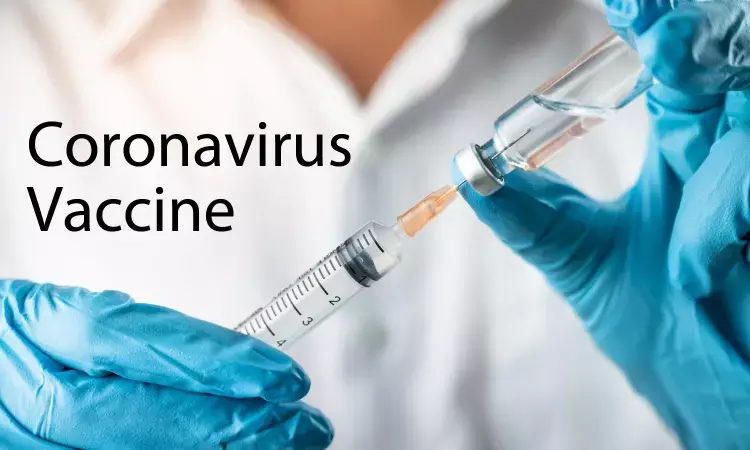- Home
- Medical news & Guidelines
- Anesthesiology
- Cardiology and CTVS
- Critical Care
- Dentistry
- Dermatology
- Diabetes and Endocrinology
- ENT
- Gastroenterology
- Medicine
- Nephrology
- Neurology
- Obstretics-Gynaecology
- Oncology
- Ophthalmology
- Orthopaedics
- Pediatrics-Neonatology
- Psychiatry
- Pulmonology
- Radiology
- Surgery
- Urology
- Laboratory Medicine
- Diet
- Nursing
- Paramedical
- Physiotherapy
- Health news
- Fact Check
- Bone Health Fact Check
- Brain Health Fact Check
- Cancer Related Fact Check
- Child Care Fact Check
- Dental and oral health fact check
- Diabetes and metabolic health fact check
- Diet and Nutrition Fact Check
- Eye and ENT Care Fact Check
- Fitness fact check
- Gut health fact check
- Heart health fact check
- Kidney health fact check
- Medical education fact check
- Men's health fact check
- Respiratory fact check
- Skin and hair care fact check
- Vaccine and Immunization fact check
- Women's health fact check
- AYUSH
- State News
- Andaman and Nicobar Islands
- Andhra Pradesh
- Arunachal Pradesh
- Assam
- Bihar
- Chandigarh
- Chattisgarh
- Dadra and Nagar Haveli
- Daman and Diu
- Delhi
- Goa
- Gujarat
- Haryana
- Himachal Pradesh
- Jammu & Kashmir
- Jharkhand
- Karnataka
- Kerala
- Ladakh
- Lakshadweep
- Madhya Pradesh
- Maharashtra
- Manipur
- Meghalaya
- Mizoram
- Nagaland
- Odisha
- Puducherry
- Punjab
- Rajasthan
- Sikkim
- Tamil Nadu
- Telangana
- Tripura
- Uttar Pradesh
- Uttrakhand
- West Bengal
- Medical Education
- Industry
AstraZeneca receives 1 Billion USD investment for Oxford vaccine

The deal includes a Phase III clinical trial with 30,000 participants and a paediatric trial.
- London: Drugmaker AstraZeneca on Thursday said it received support of more than $1 billion from the US Health Departments's Biomedical Advanced Research and Development Authority (BARDA) for the development, production and delivery of University of Oxford's upcoming COVID-19 vaccine, starting in the autumn.
The deal includes a Phase III clinical trial with 30,000 participants and a paediatric trial.
AstraZeneca is also in discussions with the Serum Institute of India and other potential partners to increase production and distribution.
In addition, the company is engaging with international organisations such as the Coalition for Epidemic Preparedness Innovations (CEPI), Gavi the Vaccine Alliance and the World Health Organisation (WHO), for the fair allocation and distribution of the vaccine around the world.
The Britain-based drug-maker said it is also in discussions with governments around the world to increase access.
AstraZeneca, which recently joined forces with the UK government to support Oxford University's vaccine, said it will supply the UK starting in September.
"This pandemic is a global tragedy and it is a challenge for all of humanity. We need to defeat the virus together or it will continue to inflict huge personal suffering and leave long-lasting economic and social scars in every country around the world," Pascal Soriot, CEO of AstraZeneca, said in a statement.
"We are so proud to be collaborating with Oxford University to turn their ground-breaking work into a medicine that can be produced on a global scale. We would like to thank the US and UK governments for their substantial support to accelerate the development and production of the vaccine. We will do everything in our power to make this vaccine quickly and widely available," Soriot said.
AstraZeneca has now finalised its licence agreement with Oxford University for the recombinant adenovirus vaccine.
The licensing of the vaccine, formerly ChAdOx1 nCoV-19 and now known as AZD1222, follows the recent global development and distribution agreement with the University's Jenner Institute and the Oxford Vaccine Group.
AstraZeneca has also agreed to support the establishment of a joint research centre at Oxford University for pandemic preparedness research.
A Phase I/II clinical trial of AZD1222 began last month to assess safety, immunogenicity and efficacy in over 1,000 healthy volunteers aged 18 to 55 years across several trial centres in southern England.
Data from the trial is expected shortly which, if positive, would lead to late-stage trials in a number of countries.
AstraZeneca said it recognises that the vaccine may not work but is committed to progressing the clinical programme with speed and scaling up manufacturing at risk.
Medical Dialogues Bureau consists of a team of passionate medical/scientific writers, led by doctors and healthcare researchers. Our team efforts to bring you updated and timely news about the important happenings of the medical and healthcare sector. Our editorial team can be reached at editorial@medicaldialogues.in.


